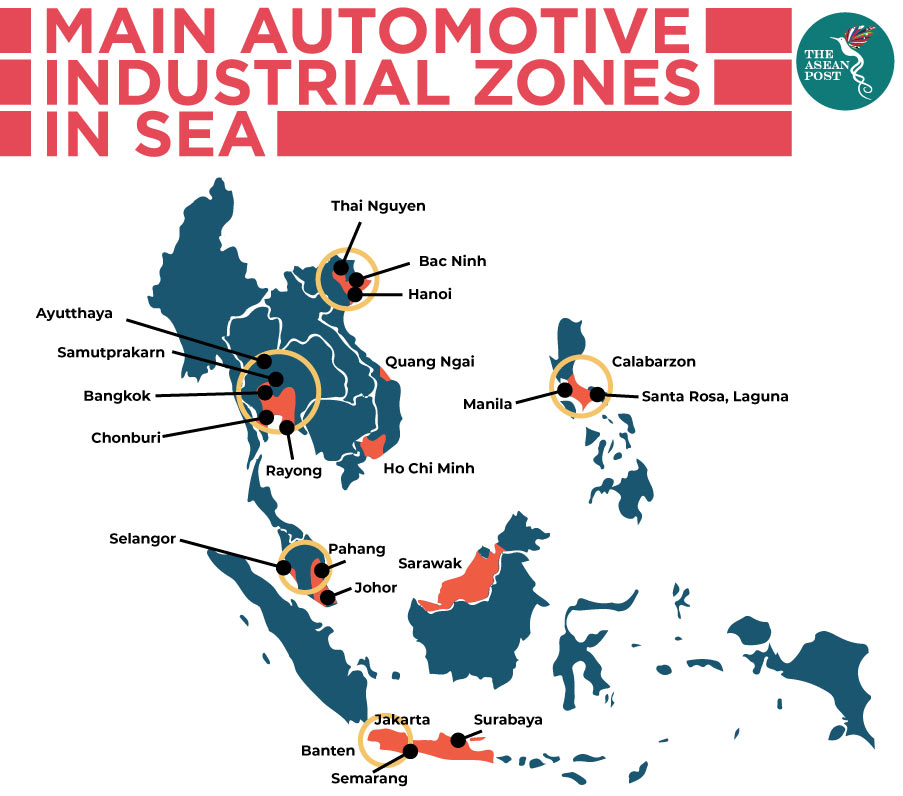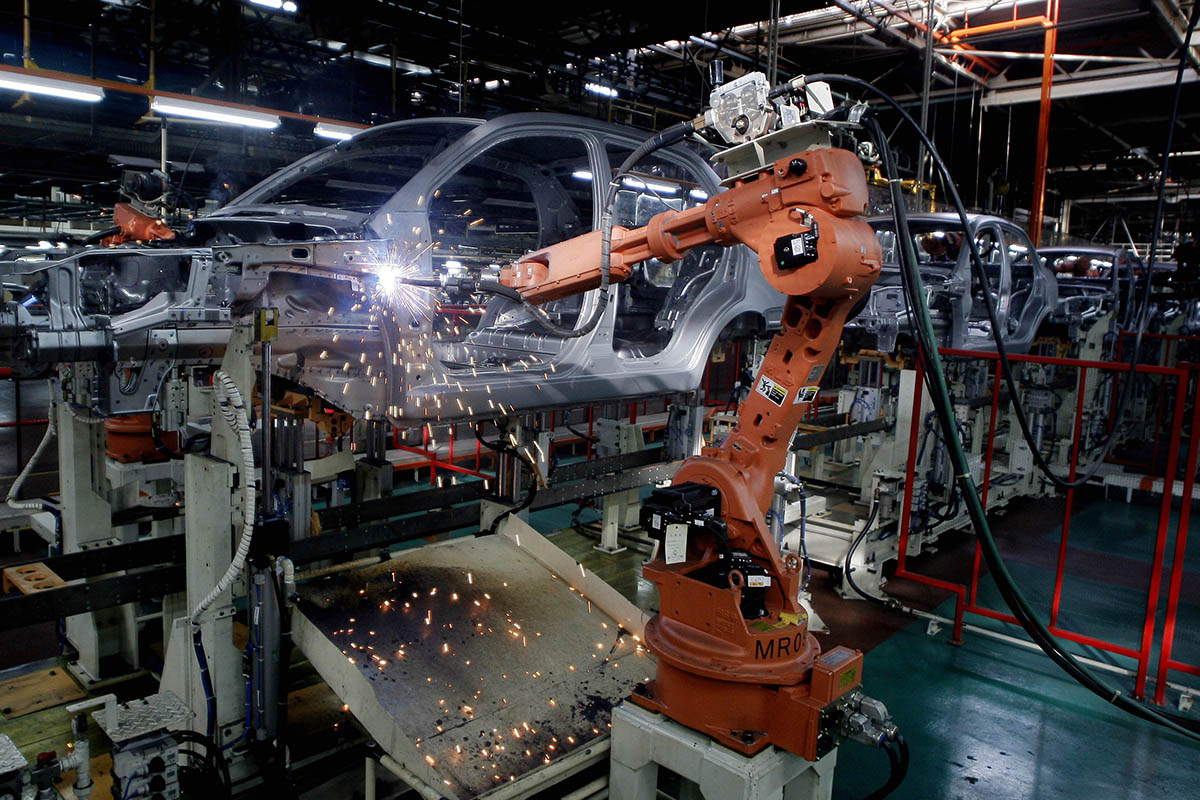Southeast Asia is fast becoming one of the most dynamic and industrialised regions in the world.
Contributing to this rapid pace in development is a growing car market driven by an increase in demand for automobiles. Besides that, strategic partnerships are also paving the way for the introduction of new technologies that look to improve the mobility of Southeast Asians.
Car sales up in 2017
The aggregate new car sales in Singapore, Indonesia, Thailand, Vietnam, the Philippines and Malaysia has risen five percent to nearly 3.4 million units in 2017.
Leading the charge is Thailand and the Philippines.
According to the Federation of Thai Industries (FTI), the Thai automobile market expanded by 13.4 percent in 2017 from last year to about 872,000 vehicles – marking its first full-year rise after four years of decline. Companies like Ford Motors and Isuzu Motors saw robust growth with sales surging by 40 percent and 12 percent, respectively. The primary drivers of growth were the end of the tax rebate lock-in period for consumers under the Thai government’s first-time buyer program and launches of new vehicle models. The FTI projects a moderate rise in sales of 3.25 percent to 900,000 vehicles this year.
In the Philippines, vehicle sales continue to grow steadily according to numbers from the Chamber of Automotive Manufacturers of the Philippines (CAMPI). The nation’s automotive industry saw a 17.66 percent increase in sales for 2017 to approximately 474,000 vehicles amid the implementation of an additional excise tax in 2018. The tax which has taken effect since January this year is slated to wind down growth in sales for the year as car prices go up.
Elsewhere, overall vehicle sales in Indonesia rose by 1.6 percent from a little over a million units in 2016 whereas sales in Malaysia declined in 2017. Nevertheless, the industry associations of both nations predict an expansion of sales of about 2 percent respectively in 2018. Vietnam which recorded a slump in vehicle sales in 2017 is expected to rebound in 2018 according to forecasts by global research company BMI Research.

Improving mobility
The automotive industry is no alien to the occasional spanner being thrown into its works. McKinsey reported in 2016 that towards 2030, the sector will see disruptive technology boosted by digitalisation and new business models. This would lead to the burgeoning of new trends like diverse mobility, autonomous driving, electrification and connectivity.
Such trends have already started arriving on Southeast Asian shores.
South Korea’s largest carmaker, Hyundai recently inked a strategic partnership agreement with leading ride-hailing and e-payment platform, Grab. Although no specific details of the partnership were released, the deal was slated to propel Hyundai’s capabilities to lead the future mobility market in Southeast Asia as well as explore potential synergies in the sharing economy – an umbrella term for peer-to-peer sharing of access to goods and services.
“Hyundai's strategic investment in Grab marks the beginning of an exciting new partnership between the two parties, bringing Hyundai one step closer to realizing its vision of future mobility. Grab's expertise in the Southeast Asian market coupled with Hyundai's eco-vehicle leadership will bring innovative services to customers,” said Young Cho Chi, Hyundai’s Chief Innovation Officer and Head of Strategy & Technology Division.
“We will continue expanding collaboration with leading mobility service providers in the world,” Young added.
The Hyundai-Grab partnership comes on the heels of a transformative shift to electric vehicles and autonomous driving in the region. The South Korean automaker will be deploying a new mobility service platform with Grab that utilises its eco vehicles like the Hyundai Ioniq Electric.
Besides that, Grab could also potentially tap into Hyundai’s recent deal with Aurora, an autonomous vehicle technology startup in the US. Grab already has an existing partnership with NuTonomy, a leading self-driving car developer and is seeking to roll out autonomous taxis by 2022. It was reported last year that NuTonomy hoped to launch a paid commercial service in Singapore by the second quarter of 2018.
As such exciting developments continue to unfold in Southeast Asia, one thing is certain. The automotive industry will likely be on the radar of tech geeks and investors alike.
Related articles:
India to boost ASEAN’s maritime security
Advancing IT with lessons from India
Battle of Marawi: Three months on
